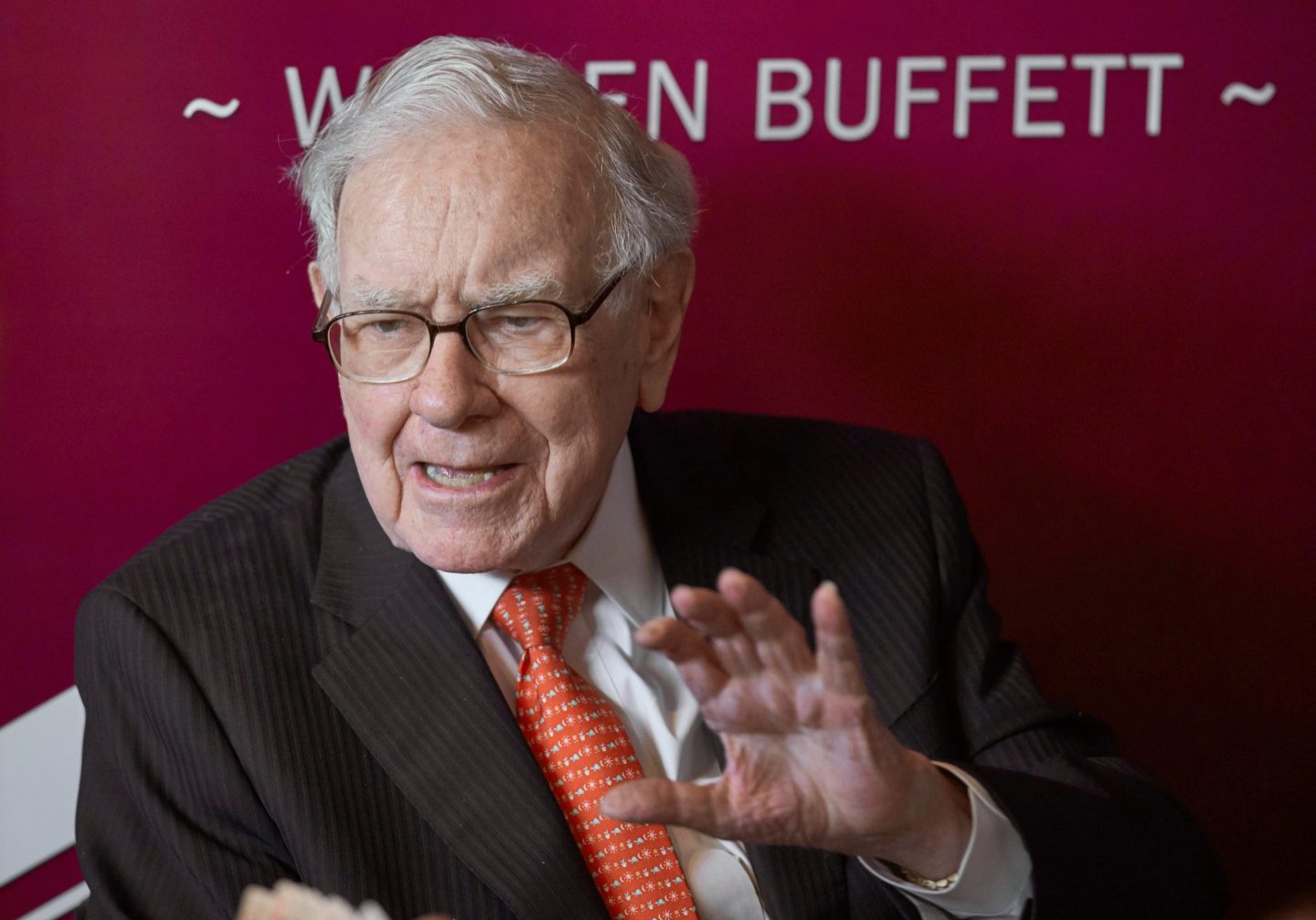The profits of Warren Buffett‘s company improved 17% thanks to a relatively mild hurricane season and more paper investment gains this year as Berkshire Hathaway prepares for the legendary 95-year-old investor to relinquish the CEO title in January.
But last month’s $9.7 billion investment in OxyChem won’t do much to diminish the $381.7 billion cash pile that Berkshire was sitting on at the end of September even though it is the biggest deal the company has made in years.
The biggest thing on most investors’ minds right now is that Buffett Vice Chair Greg Abel is set to succeed him as CEO in January, although Buffett will remain chairman at Berkshire. The Class A stock is well off its peak of $812,855, set just before Buffett surprised shareholders at the annual meeting in May by announcing he will step back. It closed Friday at $715,740, but Berkshire still didn’t buy back any of its own stock in the quarter, which suggests Buffett thinks it is still overvalued.
CFRA Research analyst Cathy Seifert said she expects investors will clamor for more details from Berkshire after Abel takes over, and that calls will also grow louder for the company to finally pay a dividend if it can’t find better uses for all that cash. But with Buffett remaining chairman there may not be any immediate changes.
“The lack of discussion and disclosure — I think has a lot of the investment community frustrated,” Seifert said. Berkshire has never had public or investor relations departments, and the company skips the quarterly investor calls that nearly every public company holds. Buffett has long said he prefers to share results with every investor at the same time, on Saturdays, and give them the weekend to digest the results before the markets reopen.
Edward Jones analyst Jim Shanahan said he’s excited to see what changes Abel might make after he becomes CEO and whether he will assemble a team of executives around him to help manage the various businesses and decide where to invest Berkshire’s cash. But investors might have to wait until Abel’s first letter to shareholders in late February or the annual meeting in May to learn more about his plans.
“I just think it’s a chance that Abel is going to do some things differently,” Shanahan said. “I think that with him being more involved in operations than Warren had been historically, I think that he’ll likely have a team around him, which would be different.”
Abel has already been managing all of Berkshire’s noninsurance businesses since 2018, and the CEOs who report to him say they’ve been impressed by his business acumen, sharp advice, and availability to help when they have questions.
Berkshire said Saturday that it earned $30.796 billion, or $21,413 per Class A share, in the quarter. That’s up from last year’s $26.251 billion, or $18,272 per A share.
But those bottom-line figures are always distorted by the current value of Berkshire’s massive investment portfolio and any stock sales, which this year added $17.3 billion to the company’s profits.
That’s why Buffett has long recommended that investors pay more attention to Berkshire’s operating earnings to get a sense of how its many operating companies are performing, including well-known insurers like Geico, BNSF railroad, several major utilities and an assortment of manufacturing and retail companies.
On that measure, Berkshire’s operating profit jumped to $13.485 billion, or $9376.15 per Class A share, thanks to a strong rebound in its insurance companies. A year ago, Berkshire reported operating earnings of $10.09 billion, or $7,023.01 per Class A share.
The four analysts surveyed by FactSet Research predicted Berkshire would report operating earnings of $8,573.50 per Class A share.
Berkshire said fewer catastrophic losses from hurricanes this year compared to when Hurricane Helene ravaged the southeast a year ago helped its insurance underwriting profit jump $1.6 billion to $2.369 billion. The bottom line was also helped by $331 million in gains on debt held in foreign currencies this year, compared to a $1.1 billion loss on those holdings a year ago.
Most of Berkshire’s other companies performed well in the quarter although profits did decline nearly 9% at its utilities to $1.489 billion, and Berkshire called out some weakness in its retail businesses because of the economic uncertainty and weaker consumer confidence. Earnings were down in the quarter at Fruit of the Loom, Duracell, Forest River RVs and at the toymaker Jazwares, which is known for its plush Squishmallows.
Berkshire said its revenue only grew about 2% to $94.972 billion during the quarter as some of its businesses performed better than others.












